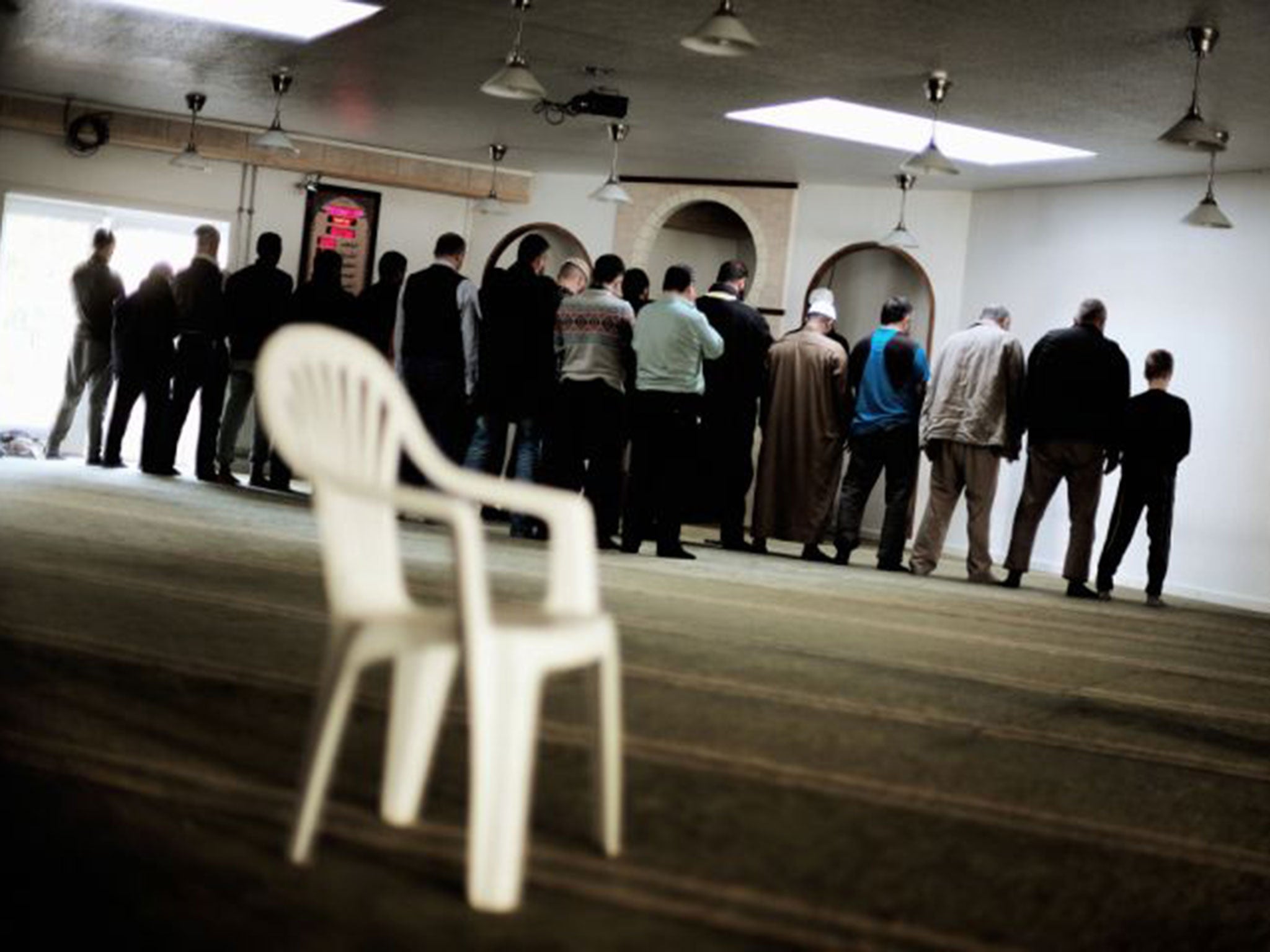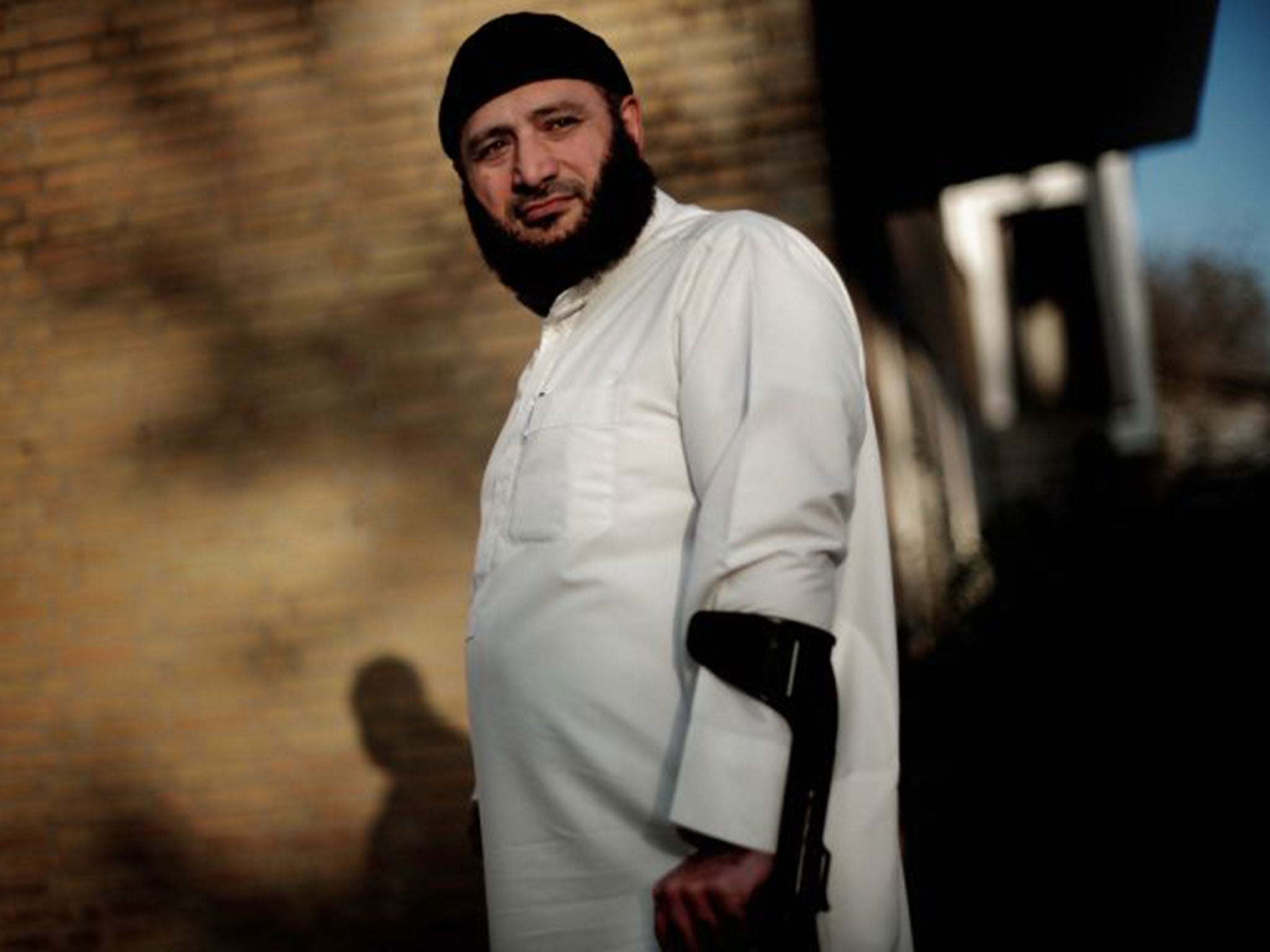Aarhus: The Danish town where Syria’s jihadist fighters are welcomed home
The port city believes in dialogue and integration for returning Muslims

Your support helps us to tell the story
From reproductive rights to climate change to Big Tech, The Independent is on the ground when the story is developing. Whether it's investigating the financials of Elon Musk's pro-Trump PAC or producing our latest documentary, 'The A Word', which shines a light on the American women fighting for reproductive rights, we know how important it is to parse out the facts from the messaging.
At such a critical moment in US history, we need reporters on the ground. Your donation allows us to keep sending journalists to speak to both sides of the story.
The Independent is trusted by Americans across the entire political spectrum. And unlike many other quality news outlets, we choose not to lock Americans out of our reporting and analysis with paywalls. We believe quality journalism should be available to everyone, paid for by those who can afford it.
Your support makes all the difference.The rush of morning shoppers parted to make way for Talha, a lanky 21-year-old in desert camouflage and a long, religious beard. He strode through the local mall with a fighter’s gait picked up on the battlefields of Syria. Streams of young Muslim men greeted him like a returning king.
In other countries, Talha – one of hundreds of young jihadists from the West who has fought in Syria and Iraq – might be barred from return or thrown in jail. But in Denmark, a country that has spawned more foreign fighters per capita than almost anywhere else, the port city of Aarhus is rolling out a welcome mat.
In Denmark, not one returned fighter has been locked up. Instead officials here are providing free psychological counselling while finding returnees jobs and spots in schools and universities. Officials credit a new effort to reach out to a radical mosque with staunching the flow of recruits.
Talha, the son of moderate Muslim immigrants from the Middle East, fought with an Islamist brigade in Syria for nine months before returning home last October. He still dreams of one day living in a Middle Eastern caliphate and though he rejects the beheading of foreign hostages by Isis, which calls itself Islamic State, he defends its summary executions of Iraqi and Syrian soldiers.
“I know how some people think. They are afraid of us, the ones coming back,” says Talha, a name he adopted to protect his identity because he never told his father he went to fight. “Look, we are really not dangerous.”
Yet critics call this city’s approach just that – dangerous. In a country that vividly remembers the violent backlash in the Muslim world after a Danish newspaper published cartoon images of the prophet Muhammad in 2006, many here want Aarhus to crack down on – not cajole – extremists.
“They are being much too soft [in Aarhus], and they fail to see the problem,” said Marie Krarup, an influential member of Parliament from the Danish People’s Party, the country’s third-largest political force. “You cannot integrate a great number of Muslims into a Christian country.” Aarhus is treating its returning religious fighters like wayward youths because that’s the way most of them started out.
The majority were young men like Talha, between 16 and 28, including several former criminals and gang members who had recently found what they began to call “true Islam”. And most lived in the Gellerupparken ghetto.
A densely packed warren of mid-rise public housing blocks, Gellerupparken is home to immigrants and their families who arrived in the waves of Muslim migration that began in the 1960s. Unemployment, especially among youths, is far higher than the city average. At one point, crime was so bad that even ambulances needed police escorts.

“These are young people who have turned to religion at a very difficult time in their lives, and they are dealing with existential questions about going to fight for what they believe in,” said Aarhus Mayor Jacob Bundsgaard. “We cannot pass legislation that changes the way they think and feel. What we can do is show them we are sincere about integration, about dialogue.”
“It doesn’t feel strange, being back,” said Talha. “It’s home.” He was born in Denmark, to an immigrant family that hailed from a nation bordering Syria. He declined to name which one.
The urge to go and fight, he said, built like a slow burn. For months, he had watched YouTube videos of civilian killings committed by the government of Syrian President Bashar al-Assad. “I could not just sit in the comfort of Denmark while my brothers were dying,” he said. He began discussing his feelings with other religious friends, and a plan was hatched.
On the day he left for Syria, in October 2012, he told his divorced parents that he and a friend were going to Turkey on holiday. Instead, his friend’s cousin had arranged their passage across the border to Syria. He worked in a refugee camp for a few weeks before getting attached to an independent battalion associated with Ahrar al-Sham, a group with alleged ties to al-Qaeda. During the months when he manned heavy-artillery batteries near Aleppo, he said, his outfit also maintained harmonious ties with Isis.
“You cannot believe everything you hear about the Islamic State,” Talha said. “There may be bad things, but also good things.” Talha came back when infighting broke out among rival factions.
Danish authorities say the vast majority of the 30 or so Aarhus residents who went to Syria were linked to one of the most polarising houses of worship in Europe – the Grimhojvej mosque.
Oussama el-Saadi, the mosque’s chairman, dismisses the allegations with a wave of his hand. Nevertheless, in January, Aarhus officials gave the mosque an ultimatum. It could either open itself up to a new dialogue with the community or face a public condemnation and, quite likely, stepped-up legal pressure.
Since January, police and city officials have engaged in a number of unprecedented sessions hosted by the mosque. In the presence of mosque leaders, officials met with returned fighters such as Talha to assess their risk levels. They also met with the mosque’s youth group to dissuade other young Muslims from travelling to the Middle East. In monthly meetings, city officials, police and members of the mosque hierarchy are now debating religious ideology, Danish law and freedom of speech.
The mosque still openly backs a caliphate in the Middle East and refuses to offer a blanket denunciation of the Isis. Saadi denies allegations the mosque became a recruiting centre for militants, saying it did not discourage or encourage those who wanted to fight. But now, its official line is that the young Muslims of Aarhus should stay home.
Police officials say the statistics prove their approach is working. “In 2013, we had 30 young people go to Syria,” said Jorgen Ilum, Aarhus’s police commissioner. “This year, to my knowledge, we have had only one.”
©WashingtonPost
Join our commenting forum
Join thought-provoking conversations, follow other Independent readers and see their replies
Comments